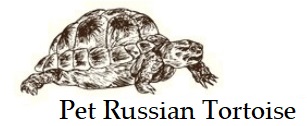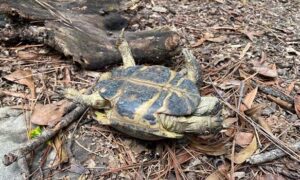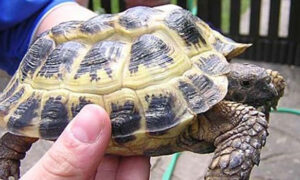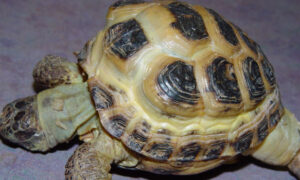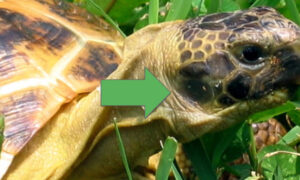Bringing home a new Russian tortoise sounds easy. You have the habitat ready and set up. Your fridge is stocked with greens and you’ve checked your yard for natural weeds and plants that are safe. You’ve done all the research. Everything should go smoothly. You’ve even compared breeders or local pet stores. You think you’ve made a solid choice on where to buy a Russian tortoise.
The day is here and you’re tortoise is coming home.
You put your Russian tortoise in its new habitat with a plate of food and a fresh bowl of water. However after several hours pass he hasn’t touched any of the food.
A few days go by and the Russian tortoise still is not eating.
Don’t freak out yet. New pet Russian tortoises aren’t like bringing home a new dog. It can take time for them to adjust. It is not uncommon for new tortoises to not eat for a few days or even a week.
Baby Russian Tortoise Not Eating
If you bought a baby Russian tortoise. It is concerning then the baby tortoise is not eating. Baby Russian tortoises aver about 1.5-2 inches. They’re so small, making it important to keep stress low and ensure healthy eating habits. However, if you ordered your tortoise online and had it shipped to you, the process of shipping is very stressful.
The breeder didn’t necessarily lie to you in that your new pet tortoise is healthy and a voracious feeder. It truly takes time for the new tortoise to calm down from being put in a small container and in a small box and then shipped across potentially several states to your home. This is stressful and can take time to adjust to the new habitat.
Make sure to keep fresh water in the enclosure and soak the baby tortoise to ensure it stays hydrated. You also want to make sure that food is still available. The tortoise may want to take a small bite here and there, so you want the food to be available.
You can even ask the breeder, or previous home, what they were feeding. Try some offering the same foods.
Adult Russian Tortoise Not Eating
It can be just as stressful for adult Russian tortoises to be shipped. Sometimes more stressful than shipping a baby tortoise because adults become set in their ways, habits and environment. Give your tortoise time to adjust.
- Keep handling to a minimum
- Keep fresh water in the enclosure
- Maintain proper heating and lighting
- Offer an assortment of foods daily
- Offer tortoise pellets, flowers or other treats to entice feeding
When to Seek Veterinary Assistance
Don’t not seek a vet check on your new pet because the internet says it’s normal for a Russian tortoise to go up to a week or more not eating. If your gut says to see a vet, then make the appointment. There are a few illnesses that can cause a Russian tortoise to not eat.
- Stomatitis
- Internal parasites and worms
- Respiratory infection
Force a Russian Tortoise to Eat
If your Russian tortoise is not eating, it is not a good idea to force feed food into its mouth. If a reptile veterinarian has deemed force feeding as necessary to getting your tortoise back to health, there are ways to go about this. However, force feeding a tortoise can be very stressful.
It is more difficult to force feed baby Russian tortoises. However it is the same process as forcing an adult tortoise to eat.
Apply pressure to the lower jaw using a wooden popsicle stick. Use a syringe to push the food onto the tortoise’s tongue and toward the back of the throat. The tortoise will swallow the food naturally. If you are unsure or have concerns, as your vet to help you.
As the tortoise gets stronger, you can try hand feeding. Offer soaked Mazuri pellets. Many tortoise keepers swear by feeding sick tortoises moistened Mazuri.

